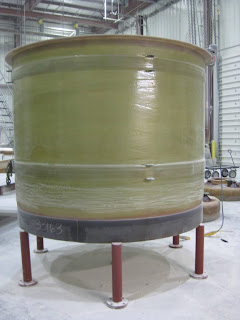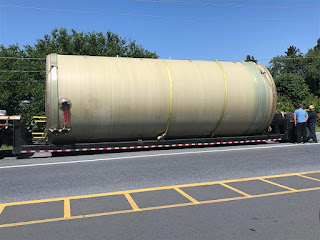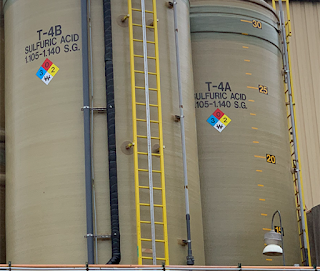Why choose FRP Tanks over Metal Tanks?
With so many materials out there, it can be difficult to choose what kind of storage tank to purchase! However, probably the most common material question consumers often find themselves asking when it comes to tanks is: “metal or fiberglass?” Though metal is often thought of as a classic tank material, FRP tanks should not be overlooked! They offer many benefits that can make them a smarter choice than a metal tank.
Fiberglass tanks are incredibly strong, especially given how lightweight they are in comparison to other offerings, such as metal tanks. Having a good “strength to weight ratio” is key, as lighter weight tanks simply provide so many more options. Generally speaking, the lighter weight a tank is, the easier and cheaper said tank will be to install. Lightweight Fiberglass water tanks also help cut down on shipping costs, all while still generally being strong enough to hold up against being stored underground.
Of course, fiberglass tanks are not simply lightweight, they can also stand up against some pretty harsh chemicals and conditions. FRP tanks are corrosion resistant, which is an incredibly important feature to look out for when housing any aggressive or corrosive chemicals. Additionally, unlike steel tanks, FRP tanks are not conductive of electricity. This can be a really helpful safety feature, which can cut down on “shock hazards”. Another important safety and efficacy feature? Ensuring that a tank is watertight. Fiberglass has this in spades. FRP tanks generally have a great ability to stay watertight, with FRP tanks being a popular choice for water tanks.
However, durability goes beyond electricity, combatting leaks, and having good anti corrosion features. All of these benefits are incredibly important to general safety, however, there is another often overlooked stressor on tanks: the weather. Aggressive weather conditions can wear on a tank, and can negatively affect tank longevity and performance. FRP is a great choice for tanks that will be subjected to more extreme weather, such as cold winters.
For more click here




Comments
Post a Comment